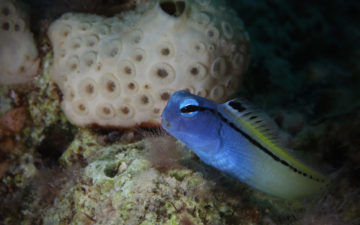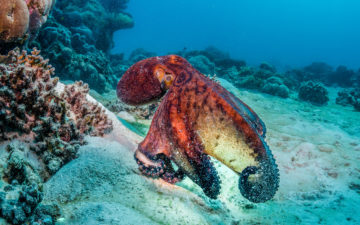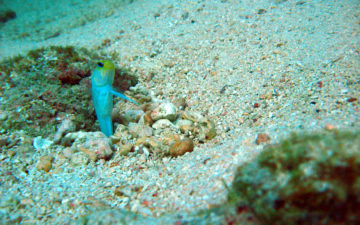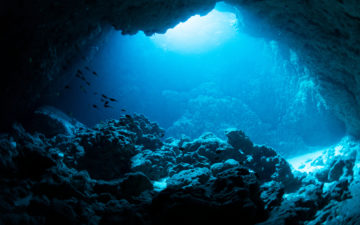In 2021, The Metals Company (TMC) was founded through a merger of DeepGreen and the Sustainable Opportunities Acquisition Corporation (SOAC), entering the U.S. stock market by filing a registration with the U.S. Securities and Exchange Commission (SEC).
As a company built to profit from deep seabed mining (DSM), TMC has pushed questionable narratives around the benefits and easy success of such mining. The Deep Sea Mining Campaign (DSMC), a fiscally hosted project of The Ocean Foundation (TOF), raised this with Mark J. Spalding, our President. He recommended picking through the initial filing to determine whether The Metals Company was making material misrepresentations to potential investors.
DSMC and The Ocean Foundation — together with our attorneys — highlighted more than a few inconsistencies between the known concerns about DSM in comparison with the excessively optimistic narrative pushed by TMC on its website, and in the filing. This first level challenge forced TMC to update its Form S-1 Registration Statement. In this document, companies are legally required to honestly summarize risks to investors. This documentation is available to the public on the SEC website for review.
Following the most recent S-1 update on June 30, 2022, in collaboration with others in the Deep Sea Conservation Coalition (DSCC) of which both DSMC and TOF are members, we looked to see how the modified filing was reflected on TMC’s website. However, TMC did not update its website narrative and it retains the original buoyant view of DSM. In fact, the TMC website presents the public with a solution for land-based mining, an increasing demand for critical metals, and the climate crisis. This solution takes the form of polymetallic nodules, or what they refer to as “a battery in a rock.”
These statements reveal the nature of The Metals Company’s highly experimental prospective work that could threaten biodiversity at the expense of a speculative profit.
Madeline Warner | Intern, The Ocean Foundation
The revised SEC filing tells a different story. One where TMC cannot confirm if “the impact of nodule collection on global biodiversity will be less significant than those estimated for land-based mining,” and is aware that technology advances may, “introduce new technologies or products that no longer require the metals that we intend to collect and process.” These statements reveal the nature of The Metals Company’s highly experimental prospective work, which could threaten biodiversity at the expense of a speculative profit.
On Technology
TMC’s website presents DSM as a simple technological venture with little harm to the environment, describing, “plans to lift polymetallic nodules to the surface, take them to shore, and process them with near-zero solid waste, no tailings or deforestation, and with careful attention not to harm the integrity of the deep-ocean ecosystem.” These plans fail to take into account that commercial DSM has never before occurred and that major scientific gaps remain in global understanding of the deep sea and its ecosystems. TMC admits understanding this in the SEC filing as it indicates that, “no seafloor polymetallic nodule deposit has ever been commercially collected, and our offshore collection technology and development plans and processes may not be sufficient to accomplish our objectives.” The objectives outlined on the website do not indicate the same level of understanding that TMC demonstrates in the SEC filing.
The SEC filing further indicates that TMC is concerned about the technological feasibility of its endeavors. In multiple places, the website indicates that the company is planning for trials and testing, with an “onshore processing pilot refining program expected to begin,” but the SEC filing states that, “some of the offshore equipment that we will need to accomplish our objectives has not been manufactured and/or tested.”
On Production and Profits
The Metals Company’s confidence in mineral production levels is prominent on the website with comments on electric vehicles inspiring, “a dramatic increase in demand for battery-grade nickel.” TMC also claims it is “developing the world’s largest estimated source of battery metals,” and that “producing metals from nodules has the potential for us to productize nearly 100% of nodule mass.” These messages present to the public a global demand for TMC’s mining and attempt to build trust that the company will succeed.
However, the SEC filing brings up more questions than confidence. TMC references a limited operating history when indicating that, “there can be no assurance that we will be able to commercially develop our resource areas or achieve profitability in the future.” The company mentions how its “actual capital costs, financing strategies, operating costs, production and economic returns may differ significantly from those we have anticipated,” and reports “the polymetallic nodules that we may recover will require specialized treatment and processing and there is no certainty that such processes will result in a recovery of metals that is consistent with our expectations.” The many areas of uncertainty for TMC include the profitability of the DSM venture, the amount of recoverable material, and the costs associated with this venture.
TMC’s SEC filing directly states that the company cannot confirm if it “will be able to commercially develop these properties or that it will generate profits in the future.”
On Risk
The SEC filing is designed to encourage honest communication and confidence between a company and its investors. As a result, risk evaluation is crucial. The Metals Company’s SEC filing is riddled with language about potential risks the DSM industry may cause for TMC. TMC explains in the filing the company is, “subject to a variety of risks, some of which may not be covered by our future or existing insurance policies,” and that there are large levels of uncertainty in areas like profitability, available resources, sufficient development plans, market fluctuations, and commercial viability of the industry. These risks may impact the business to the point where the company “may never develop minerals in sufficient grade or quantities to justify commercial operations.” In the face of concern around DSM regarding loss of biodiversity, irreparable damage, and lack of regulation, TMC is putting out a website full of statements that its own SEC filing indicates it does not believe.
What’s Next?
The International Seabed Authority, charged with stewarding the deep seabed and its resources for all of humankind, is currently hosting meetings to discuss the future of deep seabed mining. The risks of DSM as well as the admitted uncertainty surrounding the feasibility of profitable DSM activities need to be considered at all levels of the conversation.









